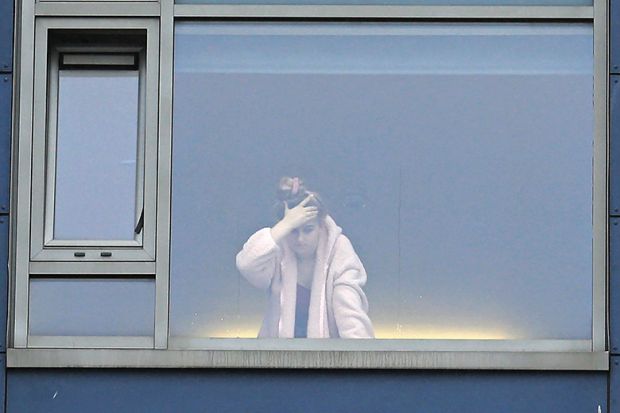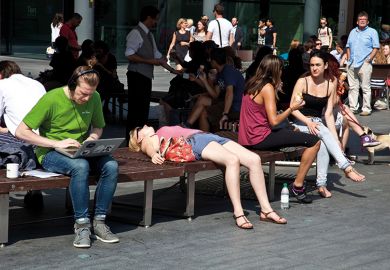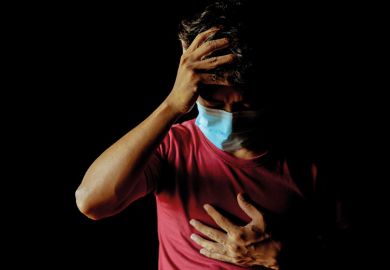点击阅读英文原文
英国学术界日前警告称,随着新冠病毒在学生群体中迅速传播,大学需要意识到相关长期疾病可能对校园造成的影响。
研究表明,在英国第一波新冠疫情后,成千上万的新冠患者可能承受长期症状,比如数周甚至数月的疲倦感或呼吸困难。
根据最近一份报告,与初始感染造成的死亡风险不同(该风险在老年人和有基础健康问题的人群中尤其高),新冠患者所受的长期影响似乎“难以预测”。
托尼·布莱尔全球变化研究所(Tony Blair Institute for Global Change)的报告重点介绍了伦敦国王学院研究团队的发现,他们一直根据有400万人使用的应用程序收集的数据来记录新冠患者的症状。
该研究表明,大多数患者并未因此而住院,其中1/10的人在确诊4周后仍报告症状,而多达2%的人表示在3个月后仍有健康问题。
利物浦热带医学院的教授保罗·加纳(Paul Garner)曾写过自己与长期新冠斗争的文章。他说,各大学需要意识到这种情况对教职工的影响,比如在压力下“将教学平台转换为混合学习模式”。
他说:“我认为我们需要让学生和教职工了解这些,以便他们帮助其他人认识到这一点,并确保他们得到适当的社会和心理支持,以及如何管理疲劳的实际帮助,确保他们不会过度疲劳,有时间康复。”
“之前我不得不停止与40名学生的所有面对面教学,因为我没办法去工作。我的身体真的太不舒服了。”
他说,尽管他认为长期新冠可能在学生群体中不那么普遍,但加纳教授说“很难相信20岁的人们就不会发生这种情况”。
这份报告引用的一项研究表明,在没有基础慢性疾病的18至34岁的确诊患者中,有1/5的人在检测呈阳性后2到3周仍报告症状。
加纳教授补充说:“对我来说,患病体验非常令人沮丧。如果再加上离家的种种压力,这种孤立无援的经历是很可怕的。”
伦敦大学学院的神经科学教授、政府独立顾问成员卡尔·弗里斯顿(Karl Friston)说,这种疾病能带来长期并发症的风险,促使人们进一步质疑让学生返回校园的决定。
他说:“(这)引出了一个问题:自满地让许多学生进入宿舍然后快乐地互相感染、或自满地认为他们就一定能免于遭受任何长期后果,这是对的吗?”
simon.baker@timeshighereducation.com
本文由Liu Jing为泰晤士高等教育翻译。
后记
Print headline: Long Covid must ‘be considered’




